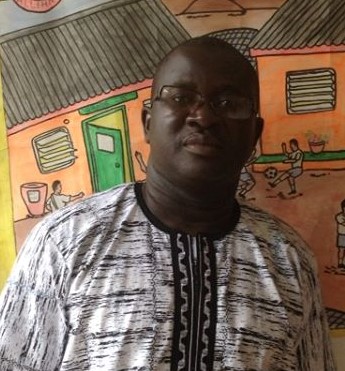
(JollofNews) – On 1st December 2016 we went to the polls and booted out not only an entrenched incumbent but also one of Africa’s most notorious, dangerous tyrant. It was the most unlikely, the most unexpected.
It happened though, by a people who who were dogged and steely in their determination, who had sacrificed life and limb and suffered privation and imprisonment, who wanted nothing less than dignity and a free environment, who voted with their feet and voice and vote.
Was that act by a people tired of being under the Wellington boots of a tin god a revolution or rather a swapping of authoritarianism for real democracy? Is that swapping itself a revolution or rather a revolutionary act? Was it “old order changeth yielding place to the new”?
Revolutions, as recorded in history, often bring about a “cataclysmic” change in the order of a political, social, religious or ecomonic system and through violent mean or mass uprising. However, as indicated by Aristotle, political revolution come about in two ways: complete change from one Constitution to another or a modification of an existing Constitution. Thus, there is the political revolution which, through violent and sudden means, transforms an entire society and establishes a new political system and one which transforms society through slow, piecemeal approaches.
Do we expect the Barrow Government to dismantle, in form and content, every institution and organ inherited from the Jammeh era? Would that signify, or rather bring to full circle, our type of revolution we want to see, a total break and departure from the Jammeh regime? Or should it be a “revolutionisation” of the political institutions such as the laws and ecomonic and political structures, to make them responsive to the needs and aspirations of the people and meeting human rights and democratic standards but leaving the physical institutions or paraphernalia in place? What of the attitudes of the people? Who revolutionises these? The Barrow Government?
There is the argument that nothing has changed in The Gambia since the Barrow Government still maintains the Jammeh structures and institutions. For them 1st December 2016 was not just a watershed but a revolution which should usher in a complete break with the past, a razing to the ground of all institutions from the Jammeh regime.
Anything less than that is unacceptable to them. But was 1st December really a revolution in the strictest sense of the word? We had a change of Government, of a political system; new President and new Cabinet; new Parliamentarians; a Supreme Court mainly Gambian; complete change of personnel in the 3 organs of Government. And yes, the Coalition’s MoU promises to “reconstruct a new Gambia free from extreme poverty, persecution and impunity where democracy and the rule of law will thrive and dissent and free expression of divergent views tolerated”.
This is my take; my daft personal opinion. I do not expect a total dismantling of the institutions that were Jammeh’s, even though few served as his cat’s paw. In fact most of the institutions were inherited from the Jawara and colonial eras. Jammeh subverted these and made them tools for his own end. However, I don’t expect the dismantling of the Police, the army and other security agencies, the prisons, the Ministries or the parastatals etc. We need these; they are part of the apparatuses necessary for governance. If we dismantle these, what are we replacing them with?
I think what we should do, and which the Government promises to pursue, is the democratisation and sanitisation of these institutions, ensuring they are democratic, accountable, transparent, accessible, gender sensitive, non-discriminatory, and adhering to human rights and human rights principles.
We should insist that these institutions are guided by the rule of law, meet basic standards on which they are held accountable, see themselves as human rights protectors and defenders and know sovereignty resides with the people. The MoU also envisages Constitutional and electoral review and reform, the establishment of new institutions such as an “independent National Human Rights Institution”, review and reform of the Judiciary, Civil Service and foreign policy.
Change, positive at that, is happening albeit at a pace some find slow and excruciating. Change has happened. We have given ourselves a new lease of life, a freer environment to question and query, demanding our rights and their respect, holding duty bearers to account, demanding respect for the Constitution, speaking truth to power regardless, etc. The new cliche is “never again’. Of course more needs doing because there are more things to do- systems, processes, standards and guidelines to set up and implement. We are on a marathon. Machivelli stated that nothing is more difficult to initiate than a new system of government.
The truth remains: revolutions, no matter how revolutionary, do not make complete with the past. Often, residues and vestiges from the past come along, willy-nilly, in the form of institutions, practices, attitudes and people. We should remain on our guards since eternal vigilance is the price of liberty. We must make sure that everyone remains true to the cause. That would require a review and reform of our attitudes, behaviours and social conventions which aided and abetted Jammeh and our horrendous history. Who duty is it to instigate that reform?





